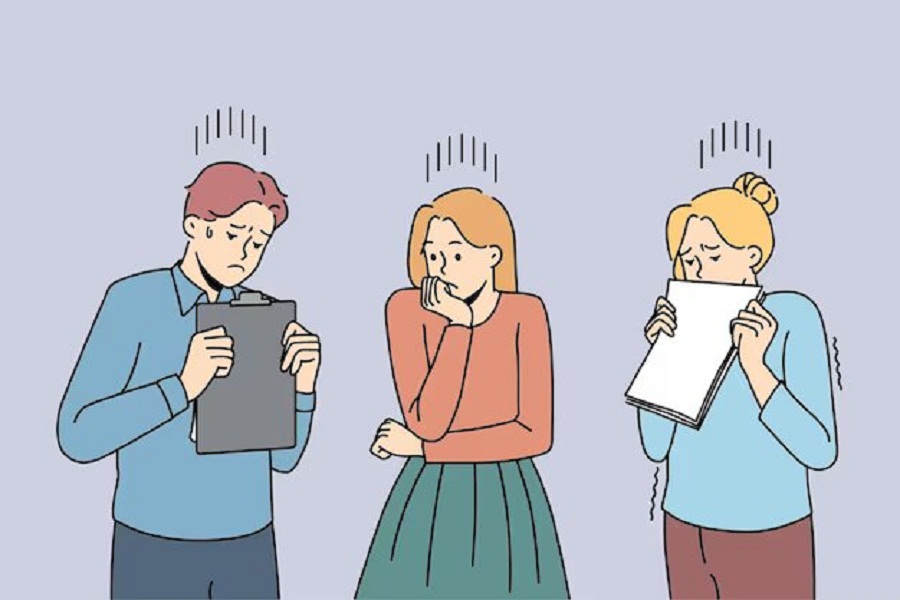
Published :
Updated :

Picture this: You're sitting in a meeting at work, or maybe in a university class. Someone presents an idea that you know won't work. You have the solution, the right question, maybe even a better approach. But you stay quiet. Why? It's not because you feel that you don't know better. It's because something inside whispers, "What if they think I'm stupid?"
If this sounds familiar, you're not alone. Across Dhaka's offices and all around the country, young Bangladeshis are wrestling with the same fear. The fear of being in the spot, of being wrong, of being an odd one out..
The stories we tell ourselves: Our minds are storytellers, and they love scary stories. "If I speak up, I'll look foolish." "If I disagree, my boss will hate me." "If I seem too confident, people will discover I'm a fraud." "I need to be perfect before I can contribute anything."
These stories feel real when they're playing in your head. But here's the thing about stories: most of them are fiction.
Take Annie Rogers, a 16-year-old from Australia who invented a device to help her non-verbal friend communicate. She said something beautiful, "I really want her to feel human." That desire to be heard, to matter, that's what we're all fighting for when we choose to speak up or stay silent.
Why our brains betray us: Your brain evolved in a world where being kicked out of the group meant death. So when you think about challenging your supervisor's idea or asking a question that might sound basic, your brain hits the panic button. It treats your office like a jungle and your colleagues like a tribe that might abandon you.
Ahmed Rauf, a young cafe owner who turned to entrepreneurship from Bangladesh, spent years staying quiet in corporate settings because his brain kept screaming "danger!" He eventually realised that staying invisible was actually more dangerous to his career than speaking up.
The comfort zone trap: We mistake staying invisible for staying safe. But comfort zones can be prisons. Melissa Tan, a young founder from Singapore, discovered this when she finally disagreed with someone in a meeting. Instead of the backlash she expected, she got respect. "That's when I understood that silence had been my biggest enemy," she said.
Fear is data, not a command: You don't need to eliminate fear. You need to question what it's telling you. When fear shows up, ask yourself: "Is speaking up actually dangerous, or am I just uncomfortable?" Most of the time, the real danger is in staying quiet while your ideas die in your head.
Kevin O'Leary, a renowned entrepreneur from the USA, talks about how young entrepreneurs build confidence through action, even unpaid work. Your presence, your body language, your willingness to engage, these all build your reputation before you even open your mouth.
Stop waiting for permission: Many of us wait for someone to invite us to speak. But leaders often assume silence means agreement. If you have something to say, say it. Don't wait for the perfect moment or the perfect words. Credibility comes from showing up, not from being granted permission.
Shifting your focus: Next time fear creeps in, in stead of asking "What if I'm wrong" try to ask "What happens if I stay silent, what insights might be lost, what problems might go unsolved, what opportunities might slip away.”
Young Bangladeshis are changing the world-- in tech, in business, in social change. But none of that happens in silence. Your voice matters not just for you, but for everyone who benefits from your ideas.
The price of invisibility: Staying quiet might feel safe, but it comes with costs. You get overlooked for promotions. Your projects miss your perspective. Your career stalls while others move forward.
The young people who get ahead aren't fearless. They just refuse to let fear make their decisions. Every time you speak up, you train yourself and others to expect your voice. Every contribution reshapes how people see you.
Your silence might protect you from embarrassment, but it also protects the world from your ideas. And that's a price none of us can afford.
oishikhan18@gmail.com


 For all latest news, follow The Financial Express Google News channel.
For all latest news, follow The Financial Express Google News channel.